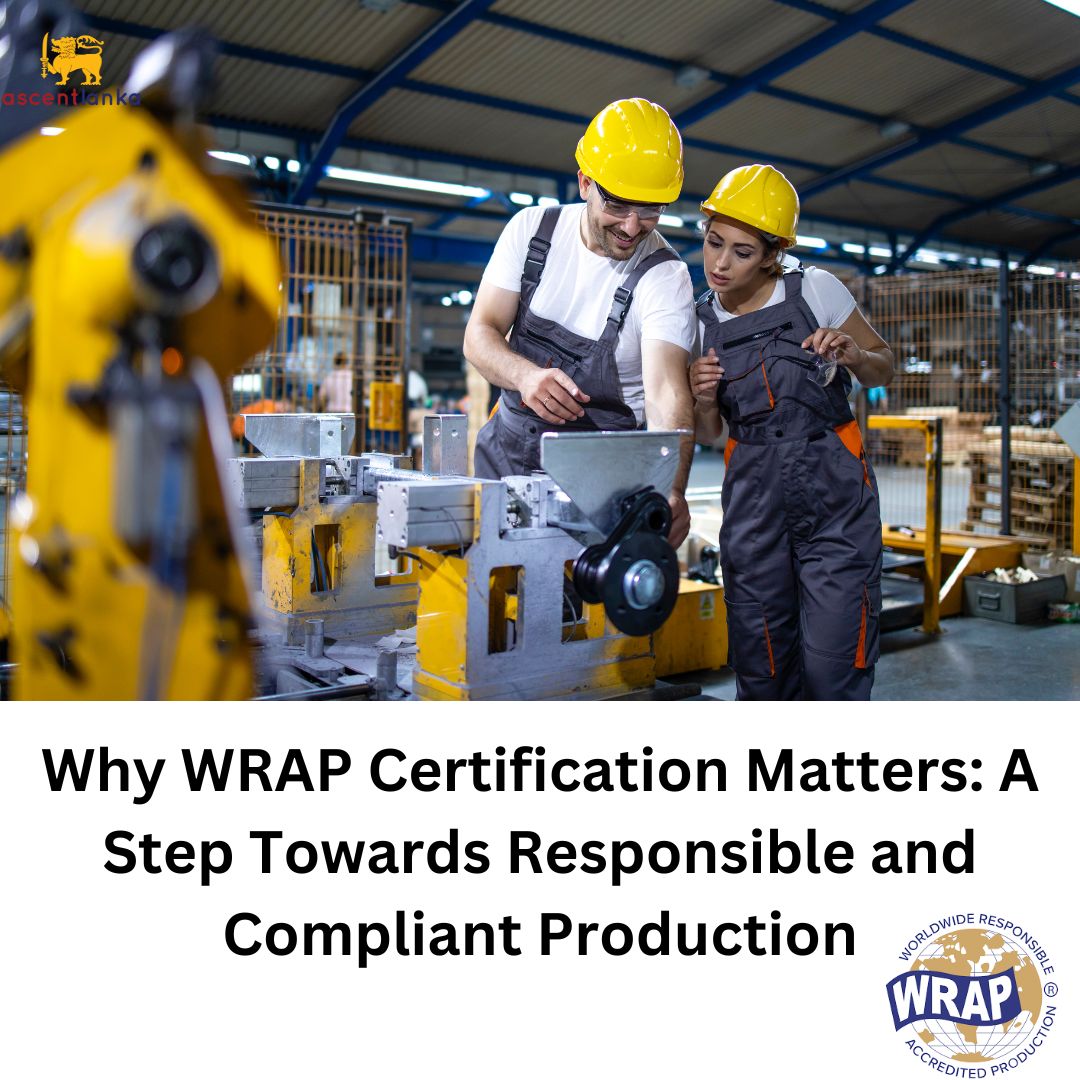
Published: July 7, 2025
Why WRAP Certification Matters: A Step Towards Responsible and Compliant Production
In our interconnected world—where supply chains stretch across continents—transparency and ethical practices are more important than ever. The textile and apparel industry, in particular, faces increasing scrutiny over labor rights, workplace safety, and environmental impact. As brands and consumers demand greater accountability, certifications like WRAP (Worldwide Responsible Accredited Production) have become essential tools for ensuring ethical manufacturing practices.
This blog explores what WRAP certification is, why it matters, and how it fosters responsible, compliant production worldwide.
What Is WRAP Certification?
WRAP is an independent, non‑profit organization dedicated to promoting safe, lawful, humane, and ethical manufacturing globally. Established in 2000, WRAP initially focused on apparel and sewn products but has expanded its scope to include a broad range of labor‑intensive industries.
WRAP certification is based on 12 core principles, which include:
- → Prohibition of forced and child labor
- → Health and workplace safety
- → Fair compensation and working hours
- → Freedom of association and collective bargaining
- → Environmental compliance
- → Customs compliance and security
- → Prohibition of harassment, abuse, and discrimination
How WRAP Certification Works
- → Application: Facility registers and pays a fee.
- → Self‑Assessment: Internal review identifies compliance gaps.
- → Third‑Party Audit: An approved auditor conducts an on‑site inspection against the 12 principles.
- → Certification Decision: Based on audit results—full certification or corrective action required.
- → Issuance & Levels:
- → Platinum: Full compliance across three consecutive audits; valid for 2 years
- → Gold: Full compliance; valid for 1 year
- → Silver: Substantial compliance with minor issues; valid for 6 months
- → Ongoing Monitoring: Includes annual reviews and unannounced audits; zero‑tolerance for serious violations.
Why WRAP Certification Matters
1. Ensures Ethical Labor Standards
WRAP enforces strict labor protections—including wage fairness, safe working hours, and workplace safety—especially crucial in regions with weak labour regulations.
2. Builds Trust with Brands & Consumers
Major global brands and conscientious consumers look for WRAP-certified factories. The certification promotes marketing advantage and mitigates reputational risk.
3. Opens Doors to Global Markets
Many international retailers require WRAP certification. Recognized globally, it streamlines procurement for manufacturers and facilitates market access.
4. Encourages Continuous Improvement & Risk Management
Regular audits and follow-up mechanisms enforce continuous compliance. The zero-tolerance policy addresses serious violations swiftly.
5. Promotes Sustainable & Responsible Supply Chains
WRAP’s dedication to environmental compliance helps manufacturers reduce emissions and waste, supporting broader sustainability goals.
WRAP vs. Other Ethical Standards
| Feature | WRAP | Others (e.g., SA8000, BSCI, Fair Trade) |
|---|---|---|
| Industry Focus | Apparel, textiles, footwear | Varies (multi‑sector or niche‑specific) |
| Certification Level | Facility‑level (Silver / Gold / Platinum) | Brand‑level or multi‑site variations |
| Scope | 12 comprehensive social, safety, legal principles | Varies—some focus only on labour or environment |
| Audit Process | Third‑party, unannounced options, zero‑tolerance | Varies by standard |
Steps to Get WRAP Certified
- → Apply via the WRAP portal
- → Conduct self‑assessment
- → Address identified issues
- → Undergo third‑party audit
- → Receive certification (Silver / Gold / Platinum)
- → Maintain via monitoring and renewals
Need Help Getting WRAP Certified?
At Ascent Lanka, we guide manufacturers through every step—from readiness evaluation to final audit—helping you earn WRAP certification and build compliant, sustainable supply chains.
Contact us today →

Leave a comment below: